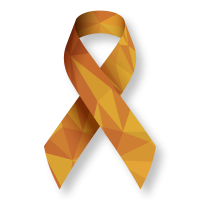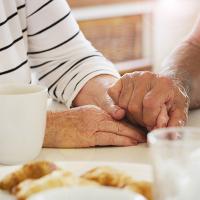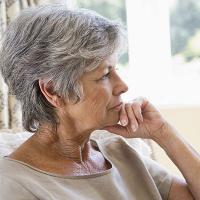Lifestyle factors, including consuming a healthy diet, have the potential to contribute to a decreased cancer risk. While the benefits of consuming vegetables, fruits, and whole grains and limiting the intake of alcohol and highly processed foods are well known, data on the effect of coffee consumption on cancer risk continue to emerge.
This article delves into the science of coffee, and presents the current data on coffee drinking and cancer risk and potential health benefits of its consumption.
- The Science of Coffee
- What Is Acrylamide and What Do We Know About Its Link to Cancer?
- Can Coffee Cause Cancer?
- Does Coffee Prevent Cancer?
- Are There Other Potential Health Benefits to Drinking Coffee?
- Should People Drink Less Coffee?
- What Is the Bottom Line Regarding Coffee Drinking and Cancer?
The Science of Coffee
While coffee is one of the most commonly consumed beverages in the world, we may not really appreciate the science that is involved in its production. Coffee is made from ground, roasted coffee ‘beans’, which are actually the dried, caffeine-rich seeds of coffee plant berries. Coffee’s chemical properties vary according to the particular coffee bush, how the coffee bean is processed and roasted, and how the coffee is prepared for consumption. Accordingly, the composition of coffee is complex and includes caffeine and other compounds, including those that are biologically active.

Notably, no proven risk of cancer with coffee drinking has been found and some health benefits associated with its consumption have been suggested. However, trace components in coffee, such as acrylamide, have received attention in the scientific community and the following summarizes what has been found.
What Is Acrylamide and What Do We Know About Its Link to Cancer?
Acrylamide is a compound that forms naturally in some foods—most often those that are plant-based—during high-temperature cooking (for example, frying, roasting, and baking of potatoes, bread, and cookies). For coffee, acrylamide is formed in the early stages of the roasting process with its concentration decreasing thereafter. Acrylamide in food does not come from packaging or the environment.

Can Coffee Cause Cancer?
Based on studies in animals exposed to very high acrylamide concentrations, the International Agency for Research on Cancer (IARC) classified acrylamide as a ‘probable carcinogen’.1, 5 However, as summarized below, studies in humans and based on a larger data set have found no strong evidence that acrylamide in foods is associated with the risk of any type of cancer and the latest research suggests that coffee may have a beneficial effect on the risk of some cancer types.1, 3, 7, 8
What does the research show about the link between coffee and cancer?
The IARC reviewed the potential link between coffee drinking and cancer risk in 1991 using a limited number of studies.7 In 2016 this potential link was re-evaluated, this time by reviewing over 1000 studies in humans and animals. The IARC concluded at this re-evaluation that current evidence indicates that drinking coffee does not increase the risk of pancreatic, prostate, or breast cancer and that it may reduce the risk of liver and uterine endometrial cancers.
Early evaluations of the association between coffee drinking and cancer risk mainly focused on bladder cancer, with a higher risk suggested among coffee drinkers based on limited studies in humans.7, 9 A more recent study observed an increased risk of bladder cancer among individuals who drank large amounts of coffee (>4 cups/day), both overall and when the comparison was limited to people who had never smoked.10 However, the most recent and large analysis from the IARC found no consistent evidence of an association between coffee drinking and bladder cancer.7
Are there other risks of drinking coffee?
Drinking very hot beverages such as coffee and tea may have other risks. Consuming scalding hot beverages (i.e., ≥65°C or ≥149°F) may irritate body surfaces that the liquid comes in contact with, such as the lining of the mouth and throat. This persistent irritation may injure cells and promote tumor growth, and might be linked to cancers of the esophagus (i.e., the tube connecting the mouth to the stomach).3, 7, 8
Does Coffee Prevent Cancer?
In independent reviews, both the IARC and the World Cancer Research Fund (WCRF) concluded that coffee probably has a protective effect against developing liver cancer and endometrial cancer.4, 8 The WCRF review also concluded there is evidence suggesting that coffee may decrease the risk of cancers of the mouth, pharynx, and larynx, as well as some types of skin cancer (i.e., basal cell carcinoma in both sexes and malignant melanoma in women).4
How does drinking coffee reduce the risk of some cancers?
The potential mechanisms by which drinking coffee may prevent some cancers are not fully understood. In general, coffee contains a range of biologically active compounds, including caffeine, chlorogenic acid, and diterpenes, which may have beneficial effects because of their antioxidant, anti-tumor, and anti-inflammatory properties.
More specifically:
- Coffee drinking may lower the risk of endometrial cancer by reducing estrogen levels and/or through an insulin-mediated mechanism.
- The protective effect against liver cancer may also be partly because of coffee-related increases in insulin sensitivity.
- The influence of coffee on digestive tract motility and liver metabolism may contribute to a lower risk for some digestive cancers.
Are There Other Potential Health Benefits to Drinking Coffee?
Strong evidence exists that coffee is a significant source of antioxidant molecules.4, 8 Antioxidants work by slowing, or in some cases preventing, the damaging effects of free electrons within our body cells (which may eventually lead to a range of health problems including heart disease and cancer). However, it is important to keep in mind that our richest sources of antioxidants are fruits and vegetables.
Coffee drinking has also been consistently associated with positive effects on insulin levels and glucose metabolism, and with reduced risks of metabolic syndrome and type 2 diabetes.4, 8 Beneficial effects of coffee drinking on liver cirrhosis and fibrosis have additionally been observed.
Should People Drink Less Coffee?
Current US dietary guidelines state that moderate coffee intake, providing up to 400 mg/day of caffeine, can be part of a healthy diet in adults. Australia and New Zealand guidelines also state a maximum daily limit of 400 mg caffeine for adults (recommendations for children and adolescents and pregnant or breastfeeding women differ by country).
Caffeine content varies according to the type of coffee beverage; for example, a 250-mL cup of instant coffee contains around 80 mg of caffeine whereas a 30-mL single shot of espresso contains around 100 mg. The amount of caffeine in a single espresso shot may also vary: US guidelines estimate 64 mg/30 mL, whereas an Australian study measured 126 mg/30 mL.12, 14, 15 Therefore when estimating caffeine intake, it is important to use reliable, country-specific guidelines for different coffee beverages.
From a health perspective it is also relevant to consider the calorie content of your preferred brew, particularly if you like to use whole milk, cream, and/or added sugar.
What Is the Bottom Line Regarding Coffee Drinking and Cancer?
Overall, a moderate level of coffee consumption has not been definitively associated with an increased risk of cancer; on the contrary, coffee drinking may have some health benefits including a protective effect against certain cancer types.
If You're Concerned About Your Risk of Developing Cancer
It's important to speak to your healthcare provider regarding any concerns you may have about developing cancer, including risk factors and how cancer is diagnosed and monitored.
For many types of cancer such as bladder cancer, early detection leading to treatment significantly improves overall survival and quality of life, and there are a range of tests and procedures available for this purpose.
If you're concerned about bladder cancer, ask your doctor about Cxbladder. Cxbladder is a cutting edge genomic urine test that quickly and accurately rules out urothelial bladder cancer in patients presenting with blood in urine and those being monitored for recurrence. The test analyzes five biomarker genes to quickly and accurately rule out the disease, reducing the need for further invasive procedures.
Learn more about Cxbladder Contact us for more information
References
- Rock CL, Thomson C, Gansler T et al. American Cancer Society guideline for diet and physical activity for cancer prevention. CA Cancer J Clin 2020; 70: 245-271.
- American Cancer Society. Diet and Physical Activity: What's the Cancer Connection? 2020. https://www.cancer.org/cancer/cancer-causes/diet-physical-activity/diet-and-physical-activity.html.
- Cancer Council Western Australia. Coffee, tea, hot beverages and cancer. 2016. https://www.cancerwa.asn.au/resources/cancermyths/coffee-tea-myth/.
- World Cancer Research Fund. Non-alcoholic drinks and the risk of cancer. 2018. https://www.wcrf.org/sites/default/files/Non-alcoholic-drinks.pdf.
- US Food and Drug Administration. Acrylamide Questions and Answers. 2019. https://www.fda.gov/food/chemicals/acrylamide-questions-and-answers#:~:text=Acrylamide%20is%20a%20chemical%20that,food%20packaging%20or%20the%20environment.
- Soares CMD, Alves RC, Oliveira MBPP. Chapter 69 - Acrylamide in Coffee: Influence of Processing. In Preedy V (ed) Processing and Impact on Active Components in Food. San Diego: Academic Press 2015; 575-582.
- Loomis D, Guyton KZ, Grosse Y et al. Carcinogenicity of drinking coffee, mate, and very hot beverages. Lancet Oncol 2016; 17: 877-878.
- IARC Working Group on the Evaluation of Carcinogenic Risks to Humans. IARC Monographs on the Evaluation of Carcinogenic Risks to Humans. In Drinking Coffee, Mate, and Very Hot Beverages. Lyon (FR): International Agency for Research on Cancer 2018.
- Zhao LG, Li ZY, Feng GS et al. Coffee drinking and cancer risk: an umbrella review of meta-analyses of observational studies. BMC Cancer 2020; 20: 101.
- Yu EY, Wesselius A, van Osch F et al. The association between coffee consumption and bladder cancer in the bladder cancer epidemiology and nutritional determinants (BLEND) international pooled study. Cancer Causes Control 2019; 30: 859-870.
- NZ Nutrition Foundation. Antioxidants. 2018. https://nutritionfoundation.org.nz/nutrition-facts/nutrition-a-z/Antioxidants.
- U.S. Department of Health and Human Services and U.S. Department of Agriculture. 2015–2020 Dietary Guidelines for Americans. 8th Edition. In. 2015.
- Food Standards Australia and New Zealand. Caffeine. 2019. https://www.foodstandards.govt.nz/consumer/generalissues/Pages/Caffeine.aspx.
- Desbrow B, Henry M, Scheelings P. An examination of consumer exposure to caffeine from commercial coffee and coffee-flavoured milk. Journal of Food Composition and Analysis 2012; 28: 114-118.
- The Morning Bulletin. How much caffeine is in your coffee. 2018. https://www.themorningbulletin.com.au/news/coffee-study-measures-caffeine-content-to-see-what/3541954/.







